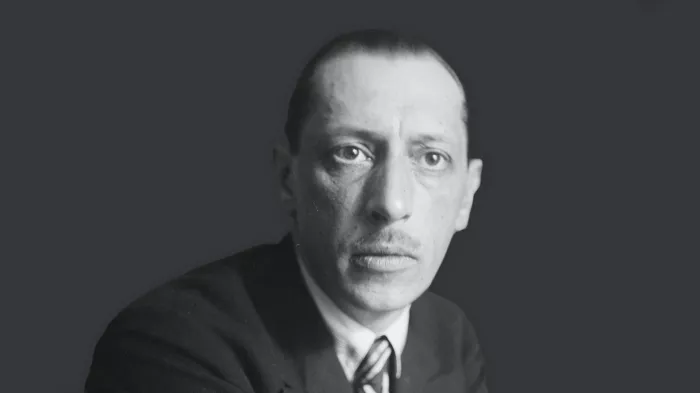Classical music, with its timeless melodies and intricate compositions, has transcended boundaries and cultures, weaving its way through the annals of human history. Within this vast realm, the contributions of Jewish classical composers stand out as a unique and significant thread in the tapestry of musical heritage. This article delves into the nuanced world of classical music, explores the distinctive characteristics of Jewish classical composers, and unveils some of the remarkable works that have shaped the genre.
Understanding Classical Music
Classical music, often regarded as a pinnacle of artistic expression, encompasses a diverse range of styles and periods. Originating in the medieval and Renaissance eras, classical music evolved through the Baroque, Classical, Romantic, and 20th-century periods. Key features include complexity in composition, adherence to form and structure, and an emphasis on instrumental and vocal performance.
Jewish Classical Composers: A Unique Perspective
The influence of Jewish composers in the classical music landscape is profound and multifaceted. Jewish composers, often navigating the delicate balance between their cultural heritage and the broader musical tradition, have left an indelible mark on the genre. Notable figures include Gustav Mahler, Felix Mendelssohn, and Leonard Bernstein, among others.
1. Gustav Mahler: Bridging Worlds
Gustav Mahler, a towering figure in late-Romantic music, was born into a Jewish family in Bohemia. His compositions are renowned for their emotional depth and complexity, often exploring existential themes. Mahler’s symphonies, such as the monumental “Symphony No. 2” (Resurrection), reflect a fusion of traditional classical elements with a profound spiritual and philosophical introspection.
2. Felix Mendelssohn: A Musical Prodigy
Felix Mendelssohn, born into a prominent Jewish family, was a child prodigy whose works bridge the Classical and Romantic eras. His “Violin Concerto in E minor” and the ever-popular “A Midsummer Night’s Dream” overture showcase his mastery in crafting elegant and emotionally resonant compositions. Despite the challenges faced by Jewish artists during his time, Mendelssohn’s legacy endures as a testament to his artistic brilliance.
3. Leonard Bernstein: A Modern Maestro
In the 20th century, Leonard Bernstein emerged as a multifaceted force in classical music. A conductor, composer, and educator, Bernstein’s contributions include the iconic “West Side Story” and numerous symphonies. His ability to infuse American and Jewish musical elements into his works reflects a commitment to cultural diversity and innovation.
Jewish Classical Music Works: A Symphony of Diversity
The works of Jewish classical composers span a wide spectrum of styles and genres, showcasing the richness of their cultural background. From orchestral symphonies to chamber music and operas, these compositions offer a glimpse into the diversity of Jewish musical expression.
1. Ernest Bloch: “Schelomo”
Ernest Bloch, a Swiss-American composer with Jewish roots, created the deeply evocative “Schelomo: Rhapsodie Hébraïque” for cello and orchestra. This masterpiece, inspired by biblical themes and Jewish liturgical music, captures the essence of Jewish identity through its emotive melodies and intricate orchestration.
2. Dmitri Shostakovich: “Piano Trio No. 2”
While not ethnically Jewish, Dmitri Shostakovich’s connection to Jewish culture is evident in his compositions. His “Piano Trio No. 2,” composed during World War II, incorporates Jewish folk elements, creating a haunting and poignant work that reflects the collective suffering and resilience of the Jewish people.
3. Osvaldo Golijov: “The Dreams and Prayers of Isaac the Blind”
In the contemporary realm, Argentine-American composer Osvaldo Golijov has gained acclaim for his fusion of Jewish and South American influences. “The Dreams and Prayers of Isaac the Blind,” written for clarinet and string quartet, explores the mystical aspects of Jewish spirituality, creating a mesmerizing sonic journey.
See Also: Epic Classical Music
Conclusion
The contributions of Jewish classical composers have not only enriched the classical music tradition but have also served as a testament to the resilience and creativity of the Jewish people. Their ability to navigate the complexities of identity and merge cultural influences has resulted in a unique and enduring musical legacy.
As we immerse ourselves in the symphonies, concertos, and operas crafted by these composers, we witness the convergence of cultural heritage and artistic expression. The works of Jewish classical composers continue to resonate with audiences worldwide, inviting us to appreciate the intricate tapestry of human experience through the lens of music.
In celebrating the legacy of Jewish classical composers, we embrace a harmonious fusion of tradition and innovation, creating a space where cultural diversity and artistic brilliance intertwine to form a symphony that transcends time and resonates across generations.

